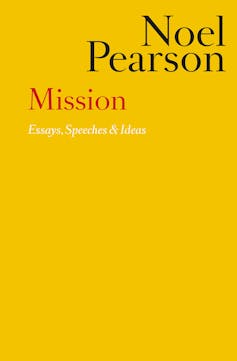
How does one tell the story of a life lived well in public service, and in service of your community?
That is the broad ambition of Mission, the latest book from Noel Pearson, First Nations lawyer, activist and founder of the Cape York Institute.
Mission, a series of Pearson’s essays, speeches and eulogies, is not as disjointed or disconnected as such collections sometimes are.
Instead, the collection presents a unified and coherent story of his life in public, his advocacy and the consistent views he has held over this time.
Mission portrays Pearson as only he himself could – a towering figure within the First Nations community, and one whose work has shaped decades of policy and debate on the issues most important to us and our communities: rights, land and justice.
It’s well worth your time to read to get an understanding of the man himself, and of the last several decades of First Nations affairs in this country.

Read more














